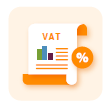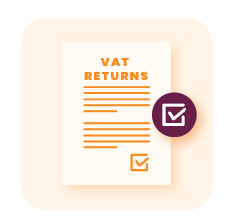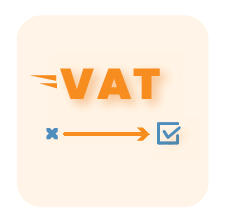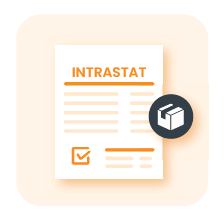Reverse Charge & “Call Off Stock” in Slovakia
When a VAT payer or a person identified for VAT in Slovakia receives goods or services from a non-Slovak taxable person, and the place of supply is in Slovakia, they are usually required to follow the reverse charge procedure, as per Section 69 of the VAT Act.
The reverse charge procedure means that the recipient, who is a VAT payer or person identified for VAT in Slovakia, is considered to have provided a taxable supply of the imported services to themselves, which results in an output tax liability.
However, it’s important to note that the reverse charge procedure for cross-border supplies does not apply to distance sales.
Read more about Reverse Charge and “Call-off stock” in Slovakia in our comprehensive guide below.
Selling in Slovakia?
Slovakia – Call off stock
Call-off stock refers to goods transferred by a supplier to a warehouse where a specific customer can take them as needed. Typically, the customer controls the warehouse.
When selling call-off stock, suppliers may need to register for VAT, similar to consignment stock. However, suppliers of call-off stock registered in EU Member States can avoid registration in the destination Member State by using a simplification scheme under Article 17a of the EU VAT Directive and transposed into Slovak law by Sections 8a and 11a of the Slovak VAT Act. This simplification scheme applies when a vendor sends stock to a warehouse in another EU Member State for subsequent supply to a known purchaser.
The transfer to the warehouse is not considered a taxable event, and instead, the taxable event occurs when the purchaser takes ownership of the goods. The taxable transfer is treated as a zero-rated intra-Community supply of goods from the vendor to the purchaser, eliminating the need for the vendor to register for VAT in the Member State of destination.
Schemes
In the conventional scheme, when goods are transported from another EU Member State to Slovakia by or on behalf of a taxable entity, these goods are stored before being acquired by the Slovak VAT-registered customer. In this scenario, the supplier is regarded as making a deemed intra-community acquisition in Slovakia that is subject to VAT.
The subsequent supply of goods by the supplier to their Slovak VAT-registered customer, which occurs when the customer becomes the owner, is also taxable. Since the supplier is not established in Slovakia, the tax is paid by the Slovak VAT-registered purchaser via the reverse-charge mechanism.
As of January 1, 2020, as part of the “2020 Quick Fixes,” a simplified scheme has been in effect. This scheme is mandatory, not optional, provided that the conditions for its application are satisfied. Under this new scheme, and subject to certain conditions, the intra-community transfer of goods is neither considered an intra-community supply nor an intra-community acquisition.
The taxation is postponed until the transfer of ownership takes place. However, the business is not completely free from obligations. It must maintain a record of the transferred goods and ensure that the intended recipient acquires the goods within 12 months. If the conditions are not met, the conventional scheme will apply.
Consignment stock
Consignment stock refers to inventory that is sent from a consignor to a warehouse and then sold to the end customer through an intermediary, known as a consignee. The consignor retains control of the stock, and ownership typically transfers to the consignee just before the final sale.
When foreign consignors transfer consignment stock into Slovakia, they are usually required to register for Slovakian VAT. This is because the transaction is generally regarded as either an import or an intra-Community acquisition by the consignor of their own goods. The classification depends on whether the goods are transported from outside the EU or from an EU Member State, followed by a domestic supply to the customer.
As the business would have to record these transactions as an import (if the supplier is from outside of the EU) and as intra-community acquisition (if the supplier is within the EU), the supplier is required to register for Slovakian VAT which will then be followed by a local supply to a customer.
Last Updated: 14/11/2023
Disclaimer
The information provided by Global VAT Compliance B.V. on this webpage is intended for general informational purposes only. Global VAT Compliance B.V. is not responsible for the accuracy of the information on these pages, and cannot be held liable for claims or losses deriving from the use of this information. If you wish to receive VAT related information please contact our experts at support@gvc.tax








